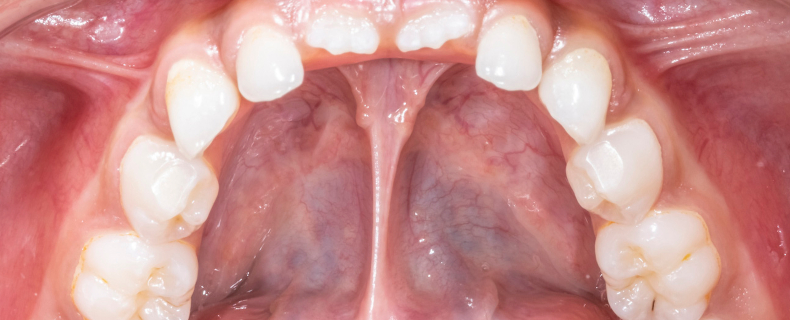
San Francisco and Marin CA
Tongue-ties are present at birth and aren’t something that develops later in life. But they can have life-long consequences if not taken care of as soon as possible. Issues ranging from failure to thrive (in infants), stunted growth (in children), mouth breathing, snoring, and sleep apnea as adults are just some of the problems associated with an untreated tongue-tie. These may not sound like significant problems, although they can actually increase the risk of certain health conditions that result in systemic inflammation and an early death. Find out on our newest blog today why a tongue-tie has serious health implications and what you can do about it.
What is a tongue tie?
Tongue ties occur when the lingual frenulum (the thin tissue that tethers the underside of the tongue to the floor of the mouth) is too short, thick, or restrictive. As a result, the tongue’s range of motion is restricted. There are different classifications of tongue ties, ranging from mild to severe. Tongue-ties are often identified after birth or when a mother attempts to breast feed her baby but experiences challenges beyond what a lactation consultant can help with.
How a tongue tie affects health
Tongue ties may restrict the tongue’s ability to rest against the roof of the mouth when the mouth is closed, resulting in chronic mouth breathing. Mouth breathing is detrimental to one’s health because it results in lower blood oxygenation, dry mouth that can increase cavities and gum disease, and cause systemic inflammation throughout the body. Improper oral posture could mean a narrow upper dental arch and an increased risk of snoring and sleep apnea later in life. Narrow dental arches are also to blame for crooked or overlapping tooth alignment. Additionally, tongue restriction may cause the inability to properly chew food, which can cause gastric issues.
How are tongue ties treated?
Tongue ties can be treated easily and quickly with laser dentistry. At Glen Park Dental, we use a specialized dental laser that is precise as it cauterizes the frenulum in seconds. Using a dental laser to release tongue-ties means less chance of infection, less bleeding, and a quicker recovery for the patient. For children and adults, a local anesthetic is placed in the treatment area before releasing the tongue-tie. However, infants rarely require anesthetic for a tongue tie release procedure.
How to tell if you have a tongue tie
You may be unable to tell whether you or your child has a tongue-tie, but a good place to start is to open your mouth wide and attempt to touch the tip of your tongue to the roof of your mouth. But if you’re a nursing mother struggling to nurse your baby, or your baby is experiencing failure to thrive, frequent feedings, or is fussy during nursing sessions, your baby could have a tongue tie. Older children may show food when eating or be labeled as picky eaters, mouth breathe, or snore while sleeping. Children that are sleep deprived may also be labeled as ADHD or experience behavioral issues. Adults with tongue-ties have likely developed poor oral habits like mouth breathing, or sleep apnea that poses serious health consequences like memory loss, difficulty concentrating, depressive like symptoms, and an increased risk of heart attack and stroke. If you believe that you or your child may have a tongue-tie, consult with Glen Park Dental to learn more.
Tongue-Tie Releases in Marin and the Bay Area
Glen Park Dental is skilled and experienced in treating tongue ties for patients of all ages. It’s never too late to take care of a tongue-tie so that you can live your healthiest life! Learn more or schedule a consultation by calling Glen Park Dental at (415) 585-1500.


